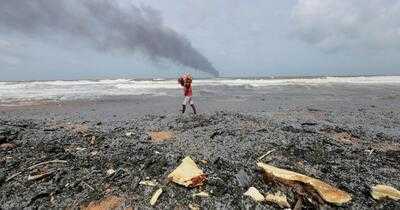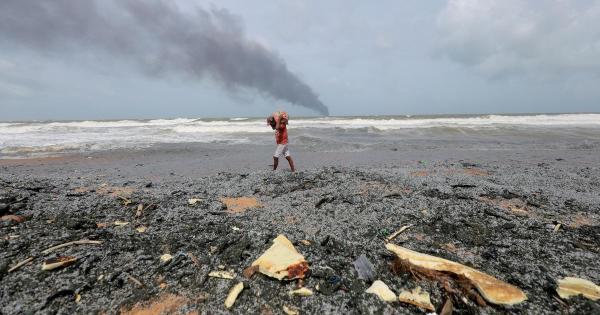

June 2025 marks four years since the container vessel X-Press Pearl, ablaze and bleeding toxins into the Indian Ocean, transformed Sri Lanka’s golden coastline into a graveyard of marine life and livelihoods.
The fire burned for 13 days – but its consequences still smolder. Plastic nurdles still wash up with the tide. Fishers still net smaller catches. Courts still chase compensation as corporations count profits. A $6.4- billion suit for damages resulted in just and measly $7.85 million being paid out in compensation.
Now, off Kerala’s coast, MSC Elsa-3 and Wan Hai 503 lie in uneasy silence, ticking time bombs in sunken rusted hulls, carrying their own cargo of chemical danger and bureaucratic amnesia. The parallels are not just uncanny. They are intolerable.
Sri Lanka’s disaster occurred during economic collapse. Kerala has no such excuse. Yet our response of being initially reluctant to arrest the captain or file suits and merely settle for insurance
We are not witnessing accidents. We are watching a global pattern. When ships carrying hazardous cargo sail under Flags of Convenience and developing nations lack enforcement muscle, disasters are inevitable. The question is whether Kerala and India will simply react – or lead.
Sri Lanka’s experience reveals three fatal governance failures. First, the illusion of preparedness. Colombo’s ports had no...
Read more
-
Is Samantha’s Bollywood dream project facing roadblocks?

-
Congress hits back at BJP over Rahul Gandhi foreign trip

-
Dharavi redevelopment is our most transformative project: Adani

-
Donald Trump on fire image gleefully shared by Iran media prompts outrage

-
What Happens to Your Body When You Experience Water Intoxication?
